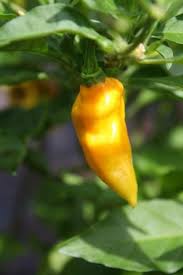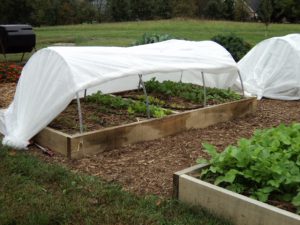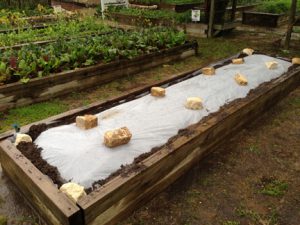Summertime Gardening Blues
June 21st was our longest day of the year, the summer solstice. Summertime is a time of activity with friends and family as we venture forth into our summer adventures. This time of year commonly brings the onset of the summertime blues for many of our gardeners.
Our summer heat and moisture can be stressful for many of our vegetable gardens by increasing the onset of fungi, pests, and other diseases. For many northerners who transplanted to the south, many of the common summertime fruits and vegetables in gardens do best during the spring and summer, leaving us scratching heads as we try to figure out how to manage gardens during the summer.
Nonetheless, many gardeners find plant choices for our vegetable gardens very limited, leaving us with our own summertime garden blues. But guess what, Eddie Cochran was wrong, there is a cure for our summertime (garden) blues. First, let us explore vegetables and herbs that do well in our Florida summer.
What to Grow
Although plant selection is limited, many heat-tolerant vegetables and herbs still give us a very productive harvest. Many herbs do great in our North Florida heat. Rosemary, Mexican tarragon, basil, and lemongrass are among the toughest summer herbs. We recommend pinching your herbs regularly to prevent flowering and increase branching.
If you want to plant vegetables or fruits-our go-to favorites are southern peas, okra, sweet potatoes, Roselle, and spinach. Southern peas, okra, and sweet potatoes are iconic vegetables grown in southern vegetable gardens. Unique plants to grow include hot peppers. Datil peppers are iconic to our region, but you can also try my personal favorite, New Mexican Hatch Chiles.

Tips for Your Summer Garden
Despite concerns about managing our vegetable gardens throughout the summer, here are three major tips to maintain a happy, healthy, and productive garden this summer: Shade Cloth, Soil Solarization, and Green Manure.
Shade Cloth
If you are wanting extra protection from the Florida summer heat, try shade cloths in your garden. Great research conducted at the Suwannee Valley Agricultural Extension Center in Live Oak, experimented different fruits and vegetable throughout the year. Open-air shade cloths provide ample sunlight to plant material but help protect from direct sun exposure. With shade cloth, you can plant Swiss chard, thyme, beets, kale, lettuce, mustard, radish, sage, and spinach this June.

Soil Solarization
To avoid working in excess in the hot summer temperatures, helping to prepare your soil for fall planting can start this summer through soil solarization. Soil solarization takes advantage of the hot sun to help reduce pests, disease, and weeds in your vegetable garden. Solarizing your soil is very beneficial when combatting nematodes.
Solarizing your gardens requires you to put clear, plastic sheets overtop parts or your entire garden. The thin plastic (minimum of 1.5 millimeters thick) helps hold heat in the soil, helping to reach high temperatures that are lethal to many of our garden pests. Lay your plastic over the garden a day after irrigation or rain, anchor down the edges to keep heat from escaping, and leave on your garden for six to eight weeks. Solarization is most effective when your garden is getting the most sun. Also, with proper management, you can continually reuse your plastic solarization tarps.

Green Manure
Our last garden tip, green manure can help build your soil’s organic matter. Green manure is plants that we specifically turn back into the soil while they are fresh. The green manure helps build soil health by providing organic material, conserving nutrients, conserve topsoil, and increase beneficial soil microbial activity. Some green manure cover crops to try this summer could include cowpea, sun hemp, and velvet bean. (More Info: https://edis.ifas.ufl.edu/vh037)

Despite our concerns about our summer garden, we can still be productive. Nonetheless, remember to stay safe this summer while working outside be staying hydrated and protecting yourself from the sun. As always, I’m rooting for you. If you are interested in learning more about sustainable landscapes, give the UF/IFAS Extension Alachua County office a call or send your emails to mag@alachuacounty.us.
 0
0
